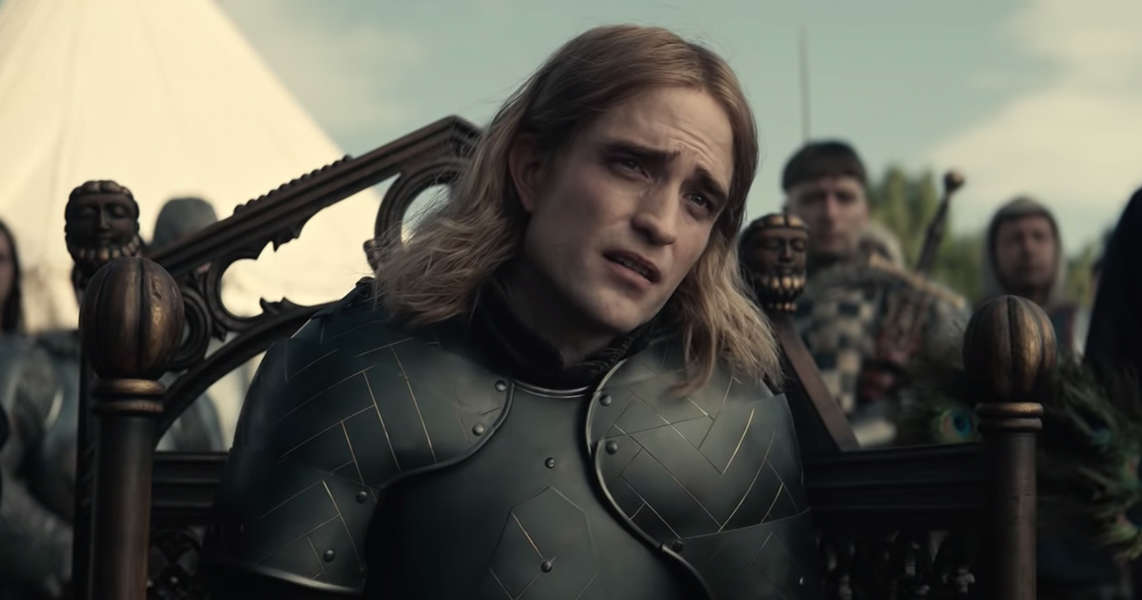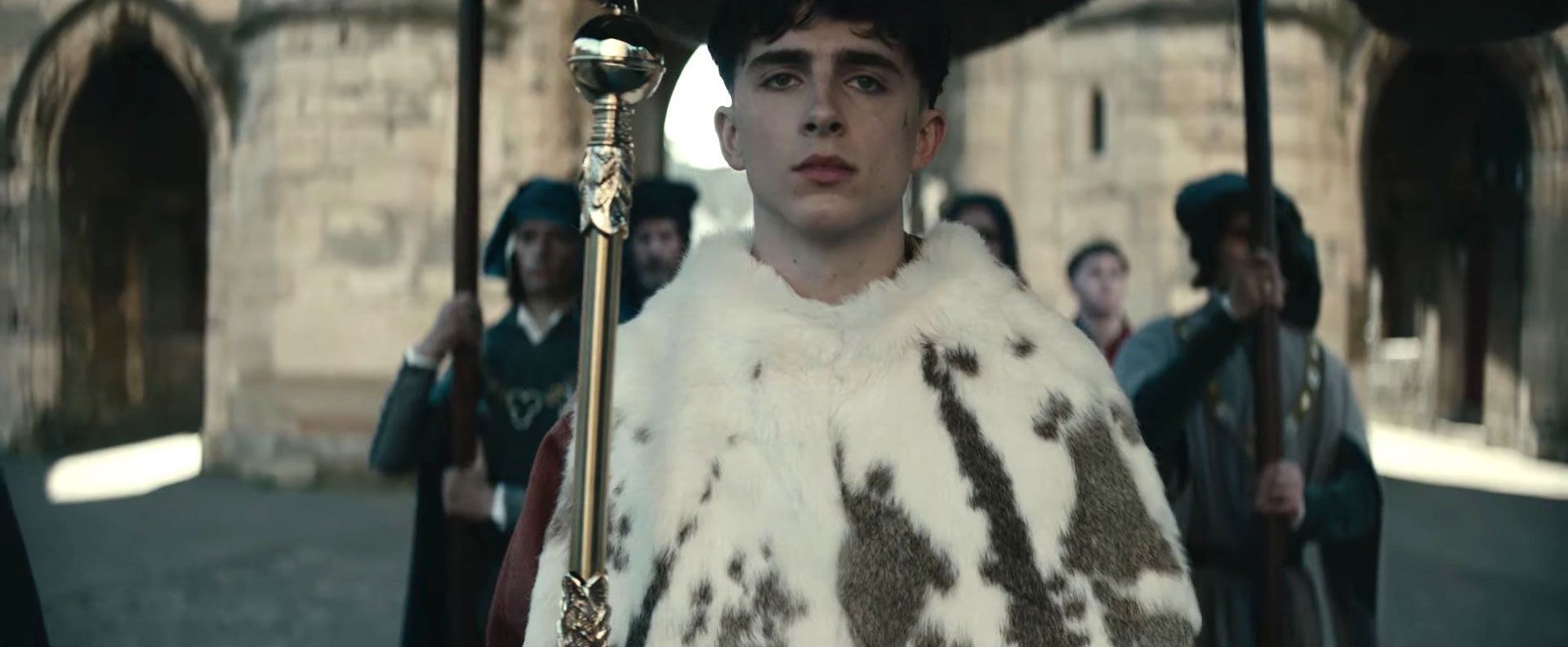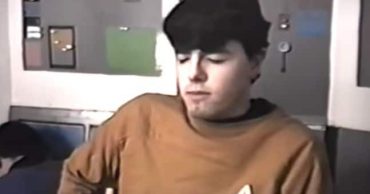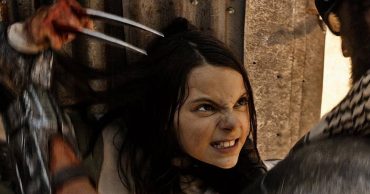
credit: The King
Historical accuracy doesn’t really come into play when it comes to a lot of movies, no matter that they’re based on historical events. But some movies are still bound to try to push an entertaining story by using factual events to their advantage, which means that since it’s Hollywood telling the story, things are going to be more cinematic and less realistic. In this particular story, Timothee Chalamet plays the role of Hal, aka King Henry V, a young man that doesn’t aspire to the crown and wants nothing to do with it, which is only bolstered by the announcement of his father that he will not take the throne. Instead, the throne passes to his younger brother Thomas. But Hal’s troubles don’t end at that point as when Thomas takes the army to quell a rebellion, Hal follows and ends up killing the leader of the other army in one on one combat. Instead of fixing the problem, however, Thomas accuses Hal of stealing his glory and proceeds on toward Wales, where he is slain. This makes Hal the next in line for succession, and he finally accepts his fate.

credit: The King
To be fair, the king starts off with good intentions.
Henry does kick off his rule with the idea of fixing the mistakes of his father, as he doesn’t want any further bloodshed, and he definitely doesn’t want to start a war. But when the Dauphin of France apparently sends him what amounts to a gag gift in the form of a ball, Henry decides to take it as a different message, regardless of what his closest advisors tell him. When his advisor tells him of an assassination plot that was foiled, Henry can no longer believe that France means him or his kingdom well and prepares for war. He enlists his best friend, who is also a former knight, as his counsel after deciding that there’s no one else he can trust more.
Relations between the English and the rest of the world have often been seen as strained in the movies.
There aren’t a lot of movies in which the English have been seen as anything but a large group of people who take pride in their homeland but at the same time are at odds with each other. The English and the French have a history that’s written quite plainly in the history books and yet has so many different working pieces that trying to sort them all out at once is nearly impossible for any but the most devoted historians. Needless to say, the way this movie went down isn’t historically accurate since the cinematic elements used were meant to convey a little more emotion and feeling that didn’t really come across the way the movie intended. If anything, the movie is kind of dry and humorless. Even the meetings with the Dauphin, played by Robert Pattinson, are kind of silly since Pattinson is one of the last people that a lot of folks might have expected to see in this type of a role. In some ways, it works, but in others, well, it feels like a story that might have benefited from a few different actors and a slightly more accurate storyline.

credit: The King
Timothee Chalamet does play the role fairly well.
Chalamet’s role as the king is one that a lot of people might not envy since one can only imagine what it would be like to wear the crown and make the types of decisions that would lead to the death of those that follow them. When the battle between the English and the French begins, Falstaff, the re-instated knight and friend of the king, leads the charge. Eschewing their horses and heavy armor, the English take the French by surprise as the grounds are sodden from the rainfall the night before, making the landscape treacherous and unstable, as the French soon discover. Near the end of the disastrous battle, the Dauphin decides to take Henry up on the challenge he lays down before the battle but slips and falls in the mud. Only a moment later, Henry gives his men leave to kill the Dauphin, thereby ending the battle.
History is forged in war, even if people desire the peace that comes after.
When Henry’s reasons for entering into open warfare against the French by the French king’s daughter, who is set to be his wife, he has to come to grips with the idea that someone in his court started the conflict. After the princess states that France made no assassination attempt against him, Henry figures out that his closest advisor set things up to make it appear that France had initiated the hostilities, thereby making sure that Henry would seek to repay such an attempt with a decisive strike against France.
History is built on a lot of things. Unfortunately, deception is one of them.
historically accurate
 Follow Us
Follow Us





